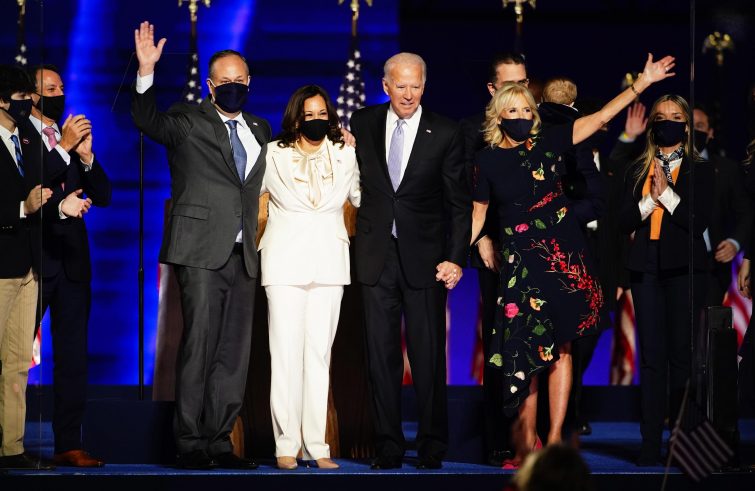
“A battle for the soul of the nation” was the slogan chosen by Joe Biden for his White House race. On Saturday, the battle was won with street celebrations, but without his opponent’s concession speech.
This victory did not unite the country, it did not heal the venom and suspicion,
which led scores of believers to walk out of church during Mass when prayers were said for the new Administration, received with tears of joy and also with anger from those who felt deceived.
Joe Biden is the 46th President of the United States, the second Catholic President 60 years after John F. Kennedy,
the oldest, who served as Vice President for two terms, elected in a climate of hurts and tears. The Democratic candidate got nine more than the 270 Electoral college votes required to win, but with razor-thin margins in as many as four States, which led the attorneys of the incumbent President and Republican opponent to request a recount of the votes and a verification of the ballots on account of alleged – yet ungrounded – voting fraud.
And while the new President received messages of congratulations from around the world, Donald Trump remained silent, with former President Bush sending his congratulations and many Republicans rejecting the narrative of mail-in voting fraud allegedly favouring the Democratic candidate, yet failing to trigger a Democratic blue wave throughout the Country.
Democrats will retain their majority in the House of Representatives but with fewer seats, while the outcome of the Senate race – currently at a tie – remains unclear,
testifying to a divided country, with two parties which, no matter how hard they tried to increase the base of support among voters, failed to convince American multitudes. And polarity will not solve the present challenges.
What is needed is the courage of crossing the aisle,
i.e. to bridge the divide and cooperate with members of the other political party in order to achieve governmental or political action and reach joint solutions. This is the mandate given by 74 million Americans to Joe Biden, voted by Republicans in Arizona and Georgia, by friends of the late Republican Senator McCain and by party rebels affiliated with the Lincoln project. He also got the vote of African Americans and black women who read in Biden’s choice for Vice President Kamala Harris, first female vice-president in American history, the courage to shatter longstanding patterns and acknowledge the new America that was built also on the sacrifice of women.
The Country’s reconciliation entails overcoming a set of specific challenges, above all the pandemic and its adverse impact on jobs, businesses, schools and households.
The healthcare reform, announced by Trump but never implemented, is another major challenge, and Biden’s plan envisages a greater involvement of public health. The immigration issue with 11 million unauthorized immigrants awaiting legal status, coupled with that of seasonal and specialized workers, cannot be addressed with executive orders alone. In fact, an overarching reform is needed.
With regard to macro-themes such as the relations with China, price of medicines, big tech, i.e. technology companies, Biden’s policies are not likely to differ much from those of Trump, but he the former is expected to favour multilateralism as opposed to an isolated and lonely America, re-entering the Paris climate accord and re-establishing ties with the World Health Organization and NATO. President Biden will keep the tax cuts that Mr. Trump signed in 2017 for households making less than $400,000, but he will raise them for higher incomes and enforce broad student loan forgiveness with free education for students from low-income families.
With respect to foreign policy, no new battleground was initiated under the Trump administration. The resumption of relations with the North Korean leader proved significant. Also worthy of mention is the US-brokered normalization agreement signed by Israel with the United Arab Emirates and Bahrain. Conversely, relations with Europe have not been idyllic.
The new U.S. President-elect will need to restore ties with the Old Continent and beyond.
“America, I am honoured that you have chosen me to lead our great country”, Mr. Biden tweeted Saturday morning, when the vote count sealed his victory. “The work ahead of us will be hard,” he continued, “but I promise you this: I will be a president for all Americans – whether you voted for me or not.” This is bound to be the greatest challenge.









